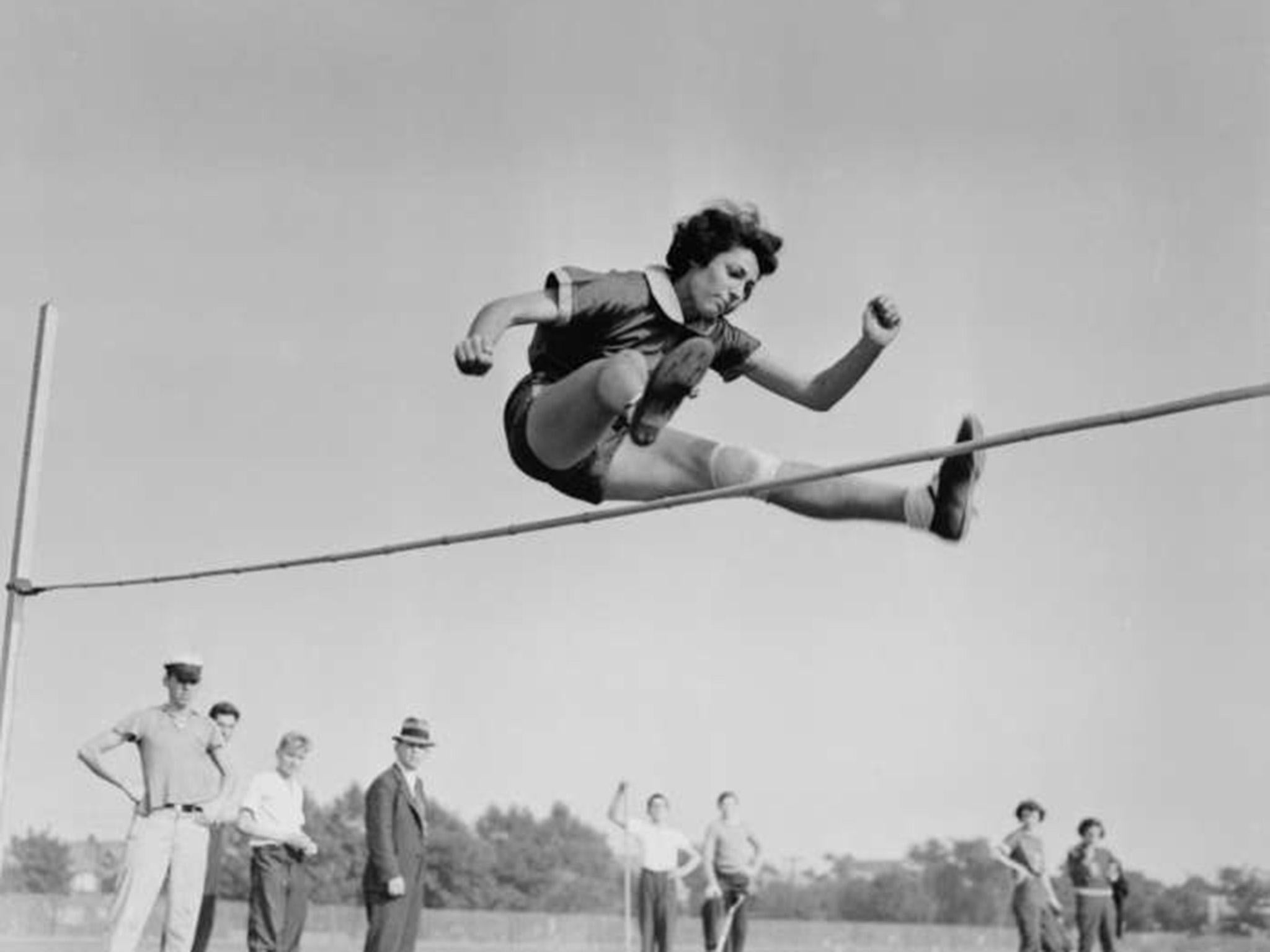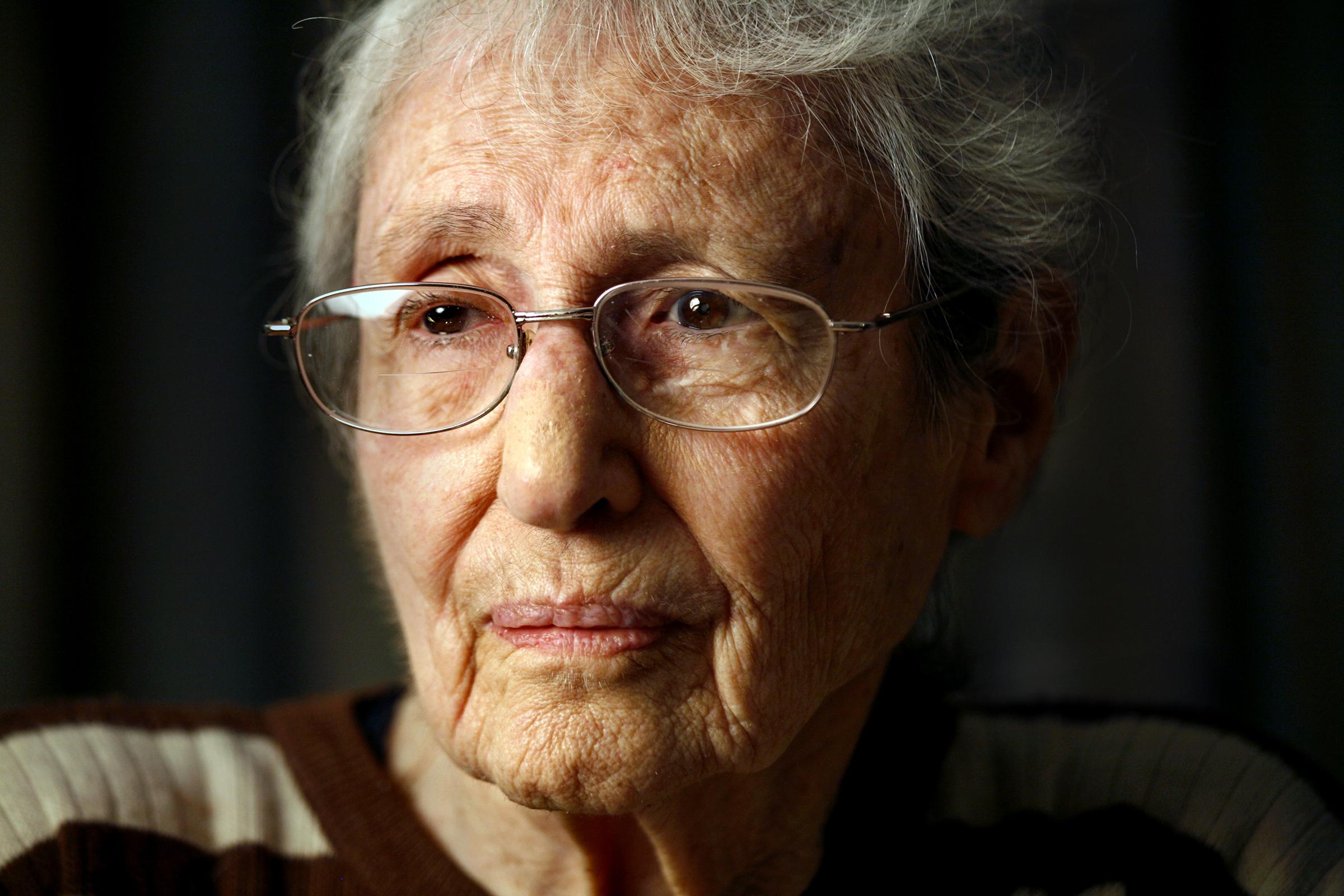Margaret Bergmann Lambert: Germany’s ‘Great Jewish Hope’ who was denied the chance of gold at Hitler’s Olympics
Lambert described feeling haunted for years about what might have transpired had she competed in the 1936 Berlin Olympic Games

Margaret Bergmann Lambert, who has died aged 103, was a German high jumper who was barred from the 1936 Berlin Olympics because she was Jewish – an omission that may have cost Nazi Germany a gold medal but brought her later renown as an athletic heroine.
With wry sadness, Lambert described herself as the “Great Jewish Hope” of the 1930s, a cause for pride among German Jews amid the Nazi rise.
When Adolf Hitler became Chancellor in 1933, Lambert, then called Gretel Bergmann, was 18 and a stellar athlete. She swam, skated, played tennis and skied, but she stood out in track and field. She was “possessed” by sports, she once told an interviewer with the US Holocaust Memorial Museum.
With the promulgation of anti-Semitic Nazi legislation, Lambert was expelled from her local sports centre. When her university application was rejected, she moved to England, where she claimed a national high jump title.
In preparation for the Berlin Games – envisioned by Hitler as a showcase of Aryan superiority – Germany announced the creation of so-called Olympic training courses for Jews. The Holocaust Museum describes them as “a sham, part of the Nazis’ effort to deflect international criticism about discrimination against Jewish athletes”.
That international criticism spurred the Nazi government to recall Lambert from England; the absence of so skilled a competitor would have been too conspicuous. Years later, she said she was repulsed by the prospect of acceding to a Nazi demand but that she feared for her family’s safety if she disobeyed.

She returned to Germany and, at a trial in Stuttgart, matched a German record with a jump of 5 feet 3 inches. “I wanted to compete just to embarrass Adolf Hitler, just to show what a Jewish girl can do. This was to be my revenge,” she told The Telegraph decades later. “I know I would have won the gold. The madder I got, the better I did.”
On her merits, the jump assured her place on the German Olympic team. But two weeks before the Games, the Reich sports office informed her that, because of what it described as her poor performance, she had not been selected for the team. To dispel questions, rumours were sown among other athletes that she was injured.
At the women’s high jump event, Ibolya Csak of Hungary won the gold medal – for clearing the same height Lambert had reached at the Stuttgart trial. A British athlete, Dorothy Odam, took silver and a German, Elfriede Kaun, took bronze. In a poignant irony, Csak, like Lambert, was Jewish.
Lambert described feeling haunted for years about what might have transpired had she competed. If she lost, she told the Holocaust Museum, she “would have been made as a joke – ‘See, we knew the Jew couldn’t do this.’” If she won, she said, it would have been “such an insult against the German psyche” that she would have feared for her life.
Further, she wondered, what would she have done atop the Olympic podium? “Say ‘Heil Hitler’ like all the others?” she asked. “This, for a Jewish girl, would never do.”
Margarethe Minnie Bergmann was born in Laupheim, a city located in southern Germany midway between Stuttgart and Munich, in 1914. Her family ran a company that made wigs and other hair products. She was the only Jewish child in her class and said “there was never, never, an unpleasant moment” before Hitler came to power. “You didn’t think of yourself as a Jew,” she told the Holocaust Museum. “You thought of yourself as a German.”
In 1937, she emigrated to the United States, abandoning the German-sounding Gretel for Margaret. “Let’s just say it was the quickest way to forget Nazi Germany,” she once said on CNN. Her parents eventually joined her in the States.
She supported herself as a maid, a masseuse and a physical therapist. A year after her arrival, she married Bruno Lambert, a fellow German Jewish athlete and refugee, who became a doctor.
Meanwhile, she won the 1937 US titles in high jump and shot putt and held the former in 1938. After Germany invaded Poland in 1939, the event that precipitated the Second World War, she “wasn’t interested in jumping anymore”, she once told Newsday. The 1940 and 1944 Games were cancelled because of the war.
Lambert’s husband died in 2013 at age 103. Survivors include their two sons, Glenn and Gary, two grandchildren and a great-grandson.
Late in life, Lambert received some of the recognition denied to her in 1936. In 1996, she agreed to attend the Summer Olympics in Atlanta as a guest of the German Olympic committee. “I decided that I could not blame this generation for what their fathers and grandfathers did,” she told The New York Times.
In 1999, she returned to her hometown for the dedication of a sports centre in her name, and in 2009, Germany reinstated her 1936 national high jump record. A 2004 HBO movie, Hitler’s Pawn, recorded her story.
“It was a not only a physical, but a moral victory that a Jew could do better than all the Germans combined,” she told the Holocaust Museum in 2008. “Even today it’s a great satisfaction to me, somehow. I don’t know why. I should be forgetting about all of this stuff and thinking about what I’m going to cook tonight.”
Margaret Bergmann Lambert, athlete, born 12 April 1914, died 25 July 2017
© Washington Post
Join our commenting forum
Join thought-provoking conversations, follow other Independent readers and see their replies
Comments
Bookmark popover
Removed from bookmarks